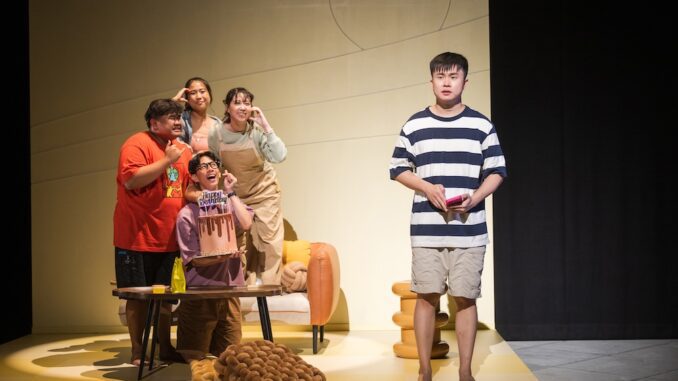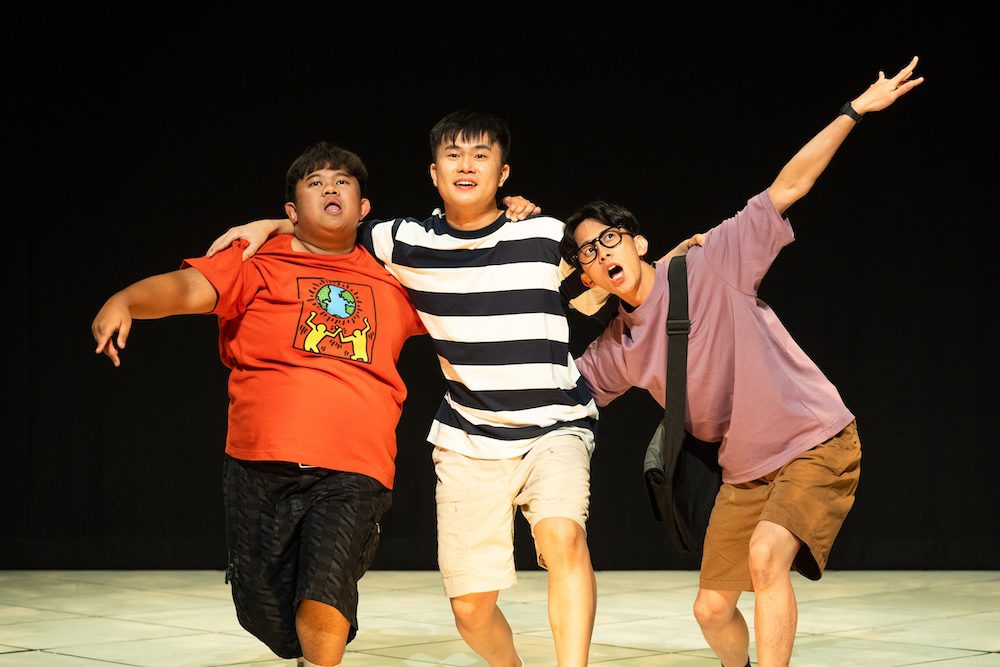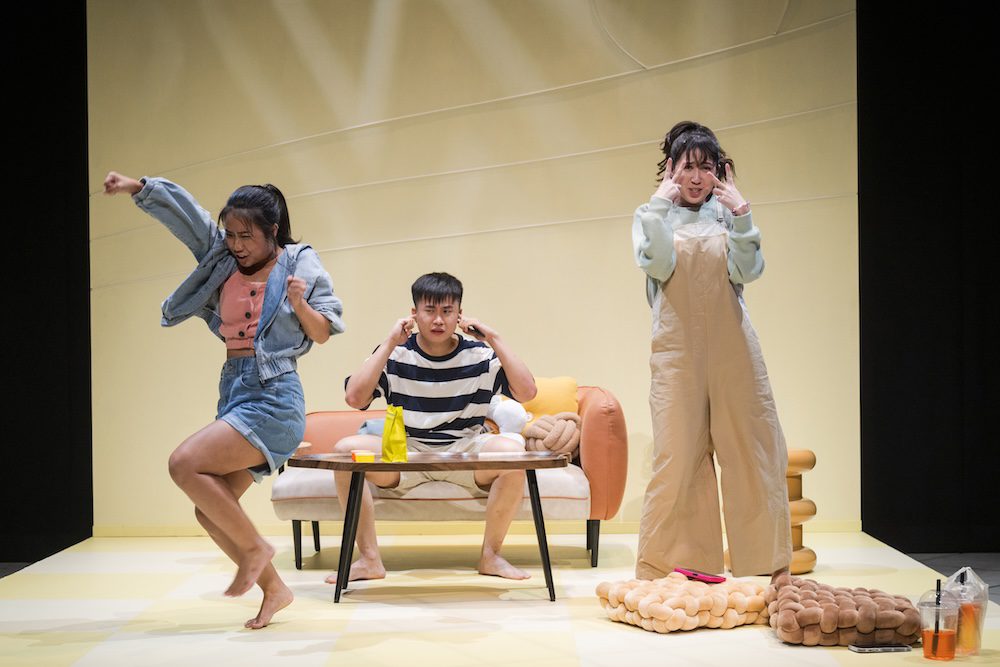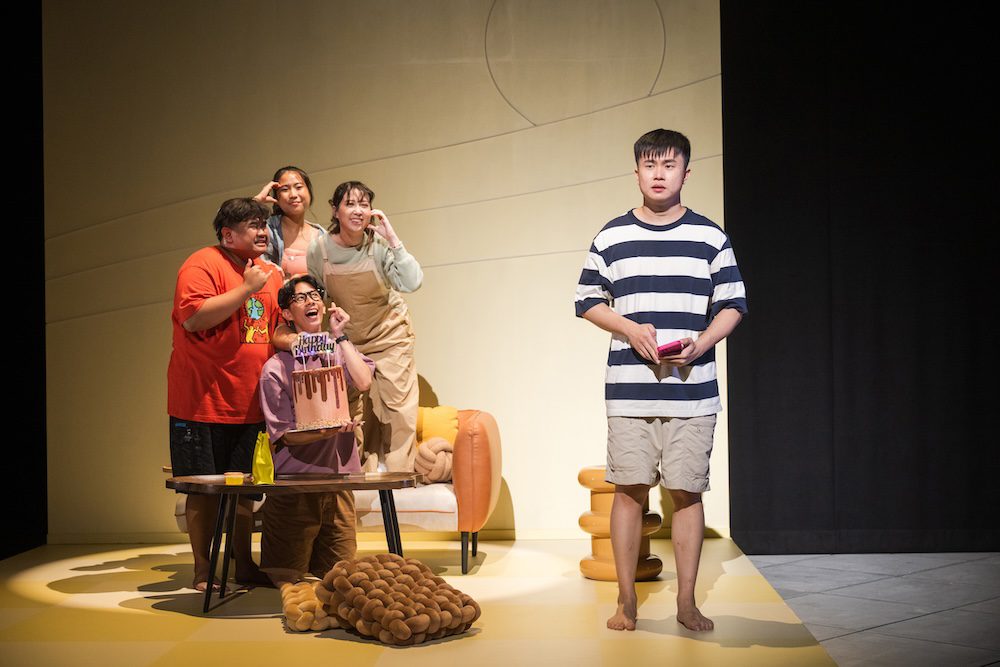
It was, what appeared to me, a light-hearted play about the youths of today and the challenges they face. A relaxing performance to watch – after all, shows about youths tend to be more optimistic in tone and brighter in outlook. The kind where you leave feeling upbeat and a bit more carefree about life.
And to be fair, it was. But it also delved into diverse family backgrounds, and one of those delvings hit hard. It was raw, it was real, it used the words I myself have uttered growing up in a less-than-ideal family situation. It caught me off guard, and for me, that subtly (or not so subtly, depending on how you look at it) reinforced the play’s title.
Hard Mode.

Synopsis
Hard Mode is a play about the teenage years of five friends living in Sengkang. But as different as Gen Alpha may be, they face challenges that are startling similar to the the generations before them – even as they navigate new obstacles that they face.
Director: Claire Wong
Writer: Faith Ng
Cast:
- Chaney Chia (Adam)
- Izzul Irfan (Rian)
- Janine Ng (Arissa)
- Kyra Lefebvre (Maya)
- Matthias Teh (XY)
- Pearl Ho (understudy)
Duration: 120 minutes

Reflects the diversity of family backgrounds today
It’s a horrible thing to say, but it felt very real to see that most of the characters in Hard Mode didn’t have a “standard” family. Growing up, it was rare to find peers who didn’t have two married biological parents living in the same household. Perhaps that was the demographic then, when the population was more homogenous. But the Singapore of today is very different, with varying family units that span nationalities, geographies, and relations (though our housing policies have yet to acknowledge that reality).
It’s courageous to show that, because it defies the idea of perfection and harmony that we try so hard to espouse in our society. But it’s also realistic, and makes the characters that much more relatable.
Gen Alpha dialogue
I applaud the writer for the copious use of Gen Alpha lingo in the play (the programme booklet even has a glossary of terms for the uninitiated!) – integrating so much of it into the dialogue is no mean feat, especially if one is (presumably) not conversant in it. It was amusing, it was authentic, and it was admirable – after all, we connect with those who speak our language. Given that contemporary slang terms are usually not perceived as suitable dialogue in theatre, this approach of including this generation in theatre makes it more accessible. And making art accessible is always a good thing.
Interesting set design
What fascinated me was the set design for Hard Mode – it comprised three moving set pieces (each a different room) that would move forwards and backwards (depending on the focus of the scene) and connect in various ways. They were all rooms in a house, and added a new dimension to the play – that while the characters grew up in the same house (for most of the play), their perceptions of it would change as they matured and aged.
The evolution of friendship across life stages
It’s a bitter pill to swallow, but friendships arise, thrive, wither, and die over life – and not necessarily in that order. The play reflects that reality, that our friendships evolve and change as we age. But it’s only in hindsight that we get to see the friendships that have mattered the most – the ones that evolved along with our lives – which is what happens in the play. Admittedly, the introspection comes from the perspective of a young adult (which is hardly the end of life), but it’s still a poignant point.
Lengthy plot meanders at times
The play comes in at two hours in length, and it feels much longer at times. Primarily, this comes from the fact that it’s not very clear where it’s headed (which is necessitated by its conclusion and message). There are time jumps and segues which are meant to build dramatic irony, but knowing how something will end also makes the narrative lose some of its engagement. Nevertheless, the upside is that the play takes its time to develop its characters, which gives us more well-rounded protagonists to empathise with.

Should you watch Hard Mode?
Hard Mode highlights the challenges of growing up in today’s climate, surfacing the usual differences while unearthing unexpected surprises. It’s coupled with a unique set and of course, a liberal serving of Gen Alpha dialogue. The appeal is definitely skewed towards its target audience, and it can feel a little lengthy to sit through. For me, the diverse family backgrounds rang true, which to me, is why this play matters – that it shows us the reality of today’s family units.
Score: 6.8
Hard Mode runs from 18 to 26 October.
Leave a Reply